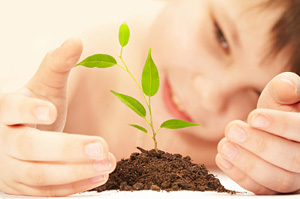
|  |  |  Editorials | Environmental | October 2009 Editorials | Environmental | October 2009  
Cuba: Raising an Environmentally Conscious Generation
 Patricia Grogg - Inter Press Service Patricia Grogg - Inter Press Service
go to original
October 08, 2009


| | In the 10th edition of the campaign in Cuba, hundreds of schoolchildren, with or without their parents, spent several hours cleaning up the beaches nearest their homes. |  |
Havana - Every summer in Cuba, the complaint is heard over and over again: "These beaches are filthy!" Empty beer and soft drink bottles, plastic bags and cups, the remains of someone's picnic lunch, and innumerable cigarette butts are strewn on the sand every day, despite the threat of fines and the pleas of ecologists.

Quoted in an article published by a Cuban newspaper, Julio Olivera, a resident of Guanabo, 30 km east of Havana, blames local residents themselves for 90 percent of the garbage in coastal areas.

"If two people pick up trash and 20 litter, we really have our work cut out for us," said an environmentalist interviewed by the Trabajadores newspaper.

A passerby, meanwhile, said the work of inspectors should be stepped up, litterers should be fined, and nature should be protected.

In her personal crusade, retired marine biologist Ángela Corvea does not overlook the importance of "no littering" signs, fines and other such measures, but says she leaves that up to the appropriate authorities.

In her own case, she decided to work directly with the community, in environmental education and awareness-raising, which in her opinion should be included at all levels of the educational curriculum, from primary school on.

"Today's boys and girls are the first generation of the 21st century. They will be the leaders and decision-makers in a few decades, and they will be the ones to especially suffer the problems of climate change. That's why my aim is to alert them and make them concerned, while keeping them busy at the same time," she says.

With that idea in mind, in 2003 the 60-year-old Corvea launched Acualina, an ecological project designed to bring environmental issues and information "to the masses," especially children, "whose brains are like little sponges. But to reach them, you need experience and training, and above all you have to be truly dedicated to what you're doing," she adds.

Acualina, a cartoon character, is a child philosopher wearing a Greek toga highlighted by the colours of the Cuban flag, who teaches and gives advice about what should be done to protect the environment. She can be seen in Cuba on TV, posters, matchboxes, calendars, prepaid phone cards, several small booklets and a web site: www.acualina.org/.

She urges people to be "better global environmental citizens," warns that "everything ends up back in the sea," and provides statistics on how long different items take to biodegrade in the water. She warns, for example, that plastic takes 500 years to break down, while glass and ceramic take "forever."

Corvea is well-known in the neighbourhood of Náutico, on the west side of the Cuban capital, for her untiring campaigning to convince people to keep the streets and the coast clean.

She says it is crucial to generate awareness, because people do not always realise that if they protect the environment where they live, they're protecting themselves.

"I wish there were many people like her in the world, so committed, so deeply dedicated to the task of sharing knowledge and spreading environmental awareness," Mariana Saker, communications director at the Ministry of Science, Technology and the Environment, told IPS.

No less important than Acualina, her flagship project, is Corvea's work as coordinator of the Australia-based international "Clean Up the World" campaign in her neighbourhood, whose theme this year was "Communities Uniting to Combat Climate Change".

In the 10th edition of the campaign in Cuba, hundreds of schoolchildren, with or without their parents, spent several hours cleaning up the beaches nearest their homes on Saturday, Sept. 19.

The aim of clean-up days like the one last month is to help communities and schools feel a sense of belonging towards and "adopt" nearby beaches, and to encourage people to scold and educate others who irresponsibly litter the beaches and the sea.

The growing decade-old movement is not limited to coastal areas in Cuba, but has spread to any neighbourhood or town where people are moved to come together to engage in clean-up actions. "It's about thinking globally and acting locally," says Corvea.

This "global resident," as she refers to herself, says she is hopeful that the climate change conference in Copenhagen will come up with concrete results. "The citizens of this planet need solutions, agreements and real commitments, not postponements until later meetings; time is running out," she says.

The 15th Conference of the Parties to the United Nations Framework Convention on Climate Change, to be held Dec. 7-18 in Copenhagen, is expected to produce a binding global agreement on reducing emissions, to take over from the Kyoto Protocol on climate change which expires in 2012.

In 2001, the scientific committee of the World Underwater Federation (CMAS) – the international umbrella group for diver training organisations – granted second place in its International Marine Environmental Protection Award to the Cuban Institute of Oceanology environmental education team headed by Corvea, who travelled to Monaco that year to receive the prize.

And in 2002, Corvea won the annual Carl Polyp Award granted by Reef Relief, an organisation devoted to saving coral reefs based in Key West, Florida. |

 |
|  |



